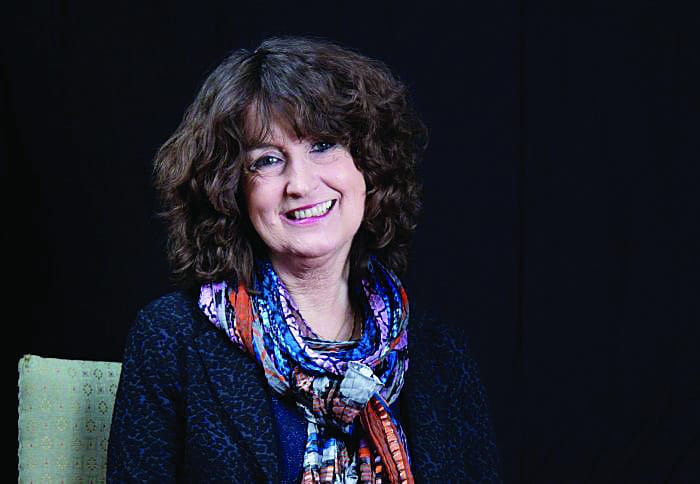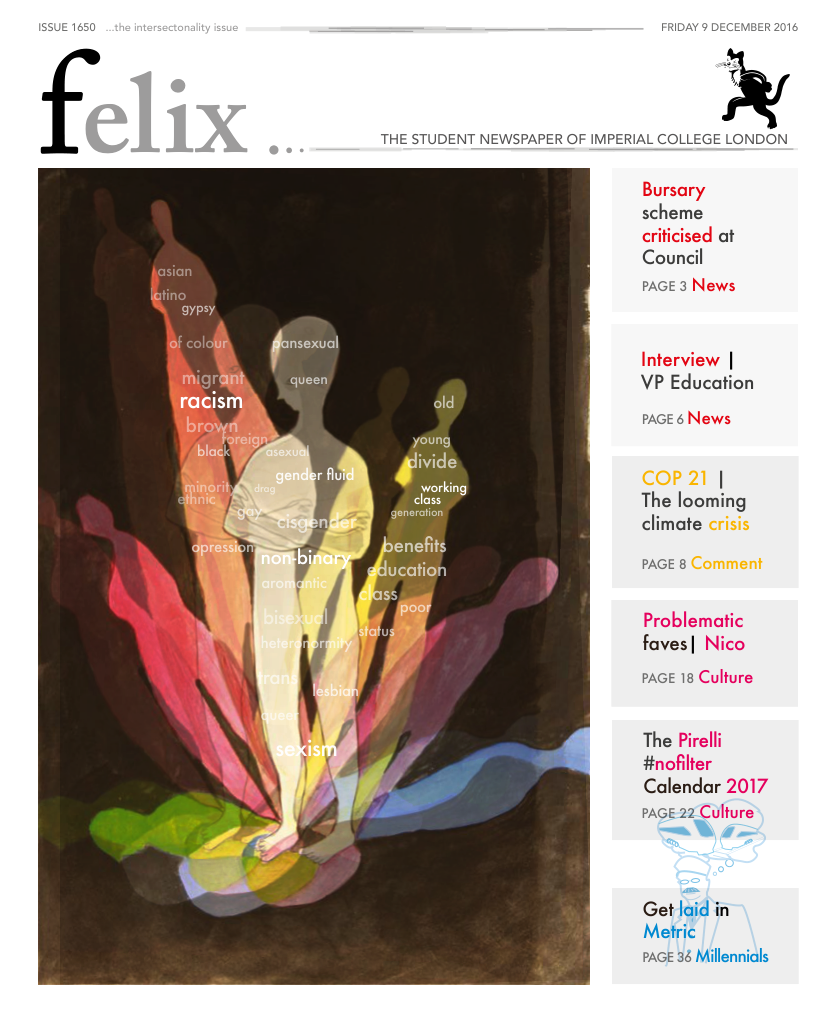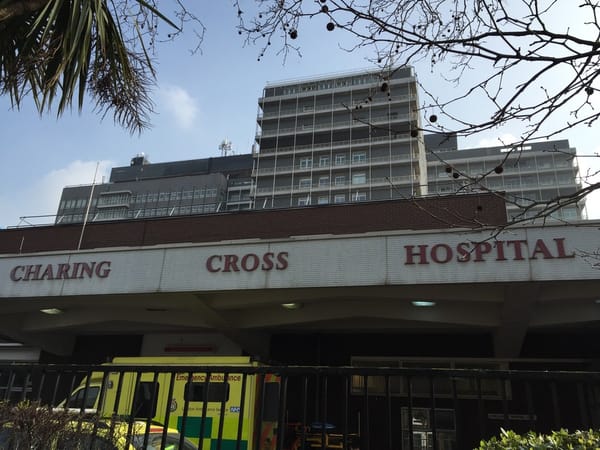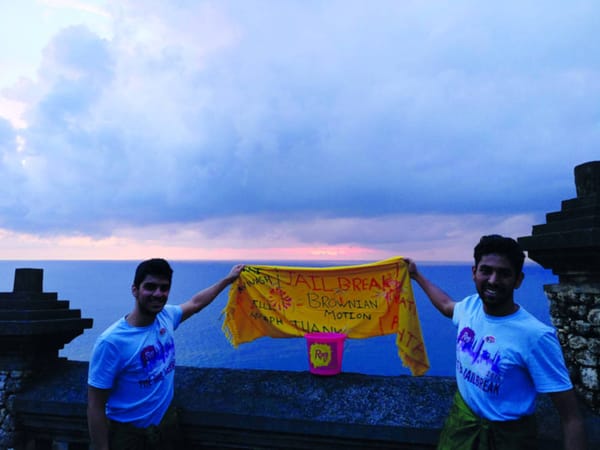felix talks NSS and Imperial’s teaching strategy plans with VP for Education
Simone Buitendijk discusses online learning, Brexit and more

So I guess we should probably start by welcoming you to Imperial. How are you finding it so far?
It’s amazing, I’m having a great time. It’s the best job I’ve had ever I think, at least that’s what it feels like right now, it’s only been four months. There’s a lot that needs to be done, which of course is great. I’m not the kind of person who likes sitting still and not achieving goals. It’s great.
It’s a very interesting time for you to come here because we have this new strategy from 2015 and the new NSS scores that haven’t exactly been a pleasant surprise, and then of course there’s Brexit. So how are you finding the challenge so far?
I like a good challenge and Imperial is a wonderful place. The students are amazing and there is so much knowledge and enthusiasm from staff, there is so much material to work with and so if that’s the starting point for a challenge...
That’s true and Imperial students can be quite opinionated especially when it comes to their course as the NSS scores have shown. We have consistently been doing poorly in a number of areas including Assessment, Feedback and Support, with variation in Teaching Quality as well. Do you have any insight so far into why that is?
Well, especially for Feedback and Assessment, what I found really illuminating about the NSS results were the qualitative bits, where people wrote little stories, because that tells you a lot – it gives a depth to the quantitative scores. And in terms of the Feedback and Assessment I think there are quick wins that we can do and are actually doing right now to change things. One of the things lots of students talk about is the zero tolerance policy for handing in coursework. So if they’re two minutes late they get zero points but then lecturers and teachers go over deadlines and don’t seem to adhere to similar standards. I think it’s those kinds of things that are really difficult to accept and I totally understand that.
And one thing I think that’s hard at Imperial is we have pockets of excellence – there are lots of people who’ve been working very hard and are doing excellent teaching and providing an excellent student experience but it’s not everywhere, it’s not across the board. And students talk to each other, they talk in halls, they talk to students from other universities in London, even in the rest of the country and they compare. And when you can’t explain as a university why certain students have a great experience and others don’t then you get this kind of disgruntlement.
You talk about refining the 2015/2020 teaching strategy. Is there a time frame for when we can start to expect changes?
I’m going to be working on it this fall and spring so up until Christmas time we’re going to be talking to lots of people. We have pop-up stands, we have town hall meetings, so we’ll be gathering information and listening to students and staff and we’re already getting lots of really thoughtful comments. It’s really great, I’m very happy with the way it’s going.
And then we’ll need January, February, March and part of April to put that into a comprehensive plan, with a budget and that needs to be in time for a planning round because a lot of what we’re going to be doing is not just thinking about new pedagogies, new ways of teaching, new ways of making students aware that we’re at a research intensive university, trawling them into research. It’s also about how to do that: how to make change happen in a place that’s so decentralised.
There are lot’s of things happening that no one knows of and if you want to make big changes you need to make sure you make people aware of this central strategy and make sure that it gets translated to the lower levels. And it means people need time and support and hence money to actually go through with the change. Change always costs time and Imperial staff and students are already working so hard. I can’t ask them to do a little bit more without making sure that they can give up something to focus on the changes.
So you’re hoping by the end of this academic year to have a budget for departments to dip in and try and elevate their teaching. When do you think we’re going to start seeing the first overhauls of teaching structure at IC?
I think we’re already going to be seeing little things this academic year, because I have the endowment that Alice [Gast] has graciously given part of for teaching and research innovation. So we’re having a call for proposals now for inovation in teaching and people can ask for up to £15,000 which is quite a bit of money. Well it’s not that much but compared to what they were given in the past it is quite a bit of money.
How much were they given in the past?
Well, pretty much nothing. There was never a call for proposals of this size. So I know there quite a few groups that are excited and are right now thinking up plans. So they can start this Spring with innovation. And then of course there is the online learning innovation which we’re also going to be seed funding this academic year. So I think we’ll see the first changes in the spring of 2017 and then the bigger ones next academic year.
We’ve maybe spotted one of your big overhauls. In the next academic year The Biomedical Science degree is going to be transformed into a Medical Bioscience degree and one of the major changes is more online learning. One of the changes that has come under scrutiny is that time allocated to lectures and seminars will only be 17% of the degree, probably one of the smallest time percentages allocated to such learning. What has the reaction been to a degree that has severely cut face-to-face teaching?
I don’t know enough about that so I have to be careful not to be talking for them. I just know what they want to do and I’ve seen an outline of a plan. It’s one of those things that I’d like to support them in so we make sure that it actually influences the student experience in a good way. Online learning needs to always follow from the strategy and it’s not a way of saving time – it almost never is. There’s so many things you can do with online pedagogy that can help the student experience.]
With online technology, you can take the lecturing out of the curriculum in the traditional way, with the professor in front of the class and you can videotape that, make students watch it at home and you use the classroom time for other things. So if you use that [classroom time] well and build on that lecture that they’ve watched at home then you can actually increase the learning and give the students a much more positive, engaging experience.
And doing online things doesn’t necessarily mean it’s not engaging, because in smaller groups students can peer review each other’s work, teachers can be part of that too and we will always need the actual physical experience. But it’s best if you do that in a more engaging way. It’s almost like a waste of everybody’s time if you use the physical, on-campus experience in this traditional lecture style. I think that’s what online learning is about. How can you enhance the student experience?
You guys tend to break up the categorisation of different types of learning into seminars and lectures etc., and then in independent learning. So in this particular case, for example, 17% would be seminars and lectures and the rest of the course would be independent learning. A lot of people will look at it and ask, “Wait a minute, if I’m spending the majority of my degree learning independently, why do I need to come here, why do I need to pay £9,000 a year?”
Again I’m not commenting on this particular degree because I really don’t know what they will be doing.
I think students are traditionally very conservative because they don’t know what it’s like when things change. They’re critical of different ways of teaching. You need to explain to them why you’re changing things and what they’ll get out of a different way of teaching. But in general i think having 100% not independent learning is not the modern way of teaching. And I think 30% of independent learning is not that much. So what students need to do is they need to learn independently. They need to build the skills to find information on their own, to compile information on their own to actually start working with the facts. If you use all teaching for facts students will never go beyond that.
Where do we draw the line? In Biology for example 80% of the course is independent learning. Is it worth the hype?
We shouldn’t necessarily confuse contact with one professor in front of the whole group with value for money and it’s very important that both students and staff think about what students should get out of their time at imperial and do that as well as possible. I personally think that sitting quietly in a room where you get taught stuff by someone isn’t the best value for money. And if 20% is that kind of teaching and 80% is other stuff I don’t think there’s anything wrong with it if that’s a ratio that has come out of careful thinking.
Back to the NSS scores: there is a lag factor, are you preparing for the possibility of our score continuing the tumble?
I would love for our NSS scores to improve, because it’s also part of the TEF (Teaching Excellence Framework), but I don’t want to do this just for the NSS. We want to change our curriculum, our pedagogy, our student experience to make it fit for a purpose in the 21st century and I think as a fringe benefit at some point we’ll see our NSS score go up. But it’s not the other way round.
Having said that do you not find there’s a lot of pressure at the moment to do as much as possible to improve the scores due to the current political climate? With everything going on I can imagine everyone in college is panicking. We need to improve or lose the ability to recruit international students.
I think we just need to keep our calm and be really British. What is it – ‘Keep calm and carry on’? I don’t think we should get into panic mode and try to do quick fixes just because we’re worried about our position in the rankings. I think there’s enough of a problem with the NSS that could make us do things that we don’t really want to do. We know some students like easy courses and predictable exams etc. But you don’t want to make your course so easy that your students will love them when you’re not actually teaching them anything. So sometimes having very challenging curriculums may lead to lower scores. If that’s what we feel the students need we should be able to give that to them. We need to be careful not to be following surveys that are inherently not perfect in something as important as the strategy to improve learning.
I guess that’s the main concern. If the interest that college has exhibited in improving is not genuine and is fuelled by wishing to merely improve the NSS scores, the changes that will be implemented...
They’re not sustainable, exactly. They may be the wrong ones and they may not be sustainable. My conviction is that if we do this seriously evidence based, thorough, with students, with the right outcomes in mind, go through all our curriculums, make sure that they’re right, that will be reflected in the NSS scores at some point as well. It would be daft to do it the other way round.
If this doesn’t happen, if we struggle to show that we’re a top university, if we’re not allowed to bring is as many international students, what will the effect be?
That would be really bad, but there’s lots of ifs in that sentence and I don’t think that’s going to happen. If we’re really serious about this strategy, if we communicate it, if the world starts to find out that really exciting stuff is happening at Imperial I think we’ll actually be ok. I’m convinced that in three to five years we could really be leading in evidence based STEM education that’s modern and technology driven.
It’s definitely a race against time though, what with Brexit looming over us. If our strategy is really long-term, there are real effects in the near future that might Impact Imperial. What’s the contingency plan?
We’re doing everything we can. Alice is constantly in the newspapers talking about visas and the effects of lowering the number of international students. I think we’re doing a really good job in explaining why this would be a bad thing. But there’s only so much you can do. Panic is never a good thing, It’s never good to do short term fixes because you’re afraid of what may happen. It need to be serious, sustainable. I’m an optimist and always really positive but I’m also a realist. I’m pretty sure that if we’re going to do what we’re promising and if we’re really going to take student experience and education seriously and modernise the experience in an evidence based way, I think that’s going to help us in our branding, in the way we’re being perceived by the world. And I think we’re really going to be able to attract good students and we’re more likely to win a battle with the Government if that comes, if we show them we’re really serious about education, than if we just do quick patch up work that people will just see through. We have to continue feeling confident and calm and thinking ‘Hey you know, we’re Imperial’ [laughs].







